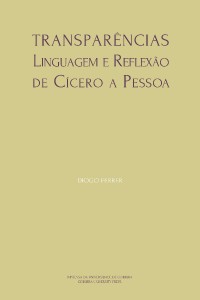Please use this identifier to cite or link to this item:
https://hdl.handle.net/10316.2/78905| DC Field | Value | Language |
|---|---|---|
| dc.contributor.author | Ferrer, Diogo | por |
| dc.date.accessioned | 2018-01-05T10:27:43Z | |
| dc.date.accessioned | 2020-03-27T16:55:41Z | - |
| dc.date.available | 2018-01-05T10:27:43Z | |
| dc.date.available | 2020-03-27T16:55:41Z | - |
| dc.date.issued | 2017 | - |
| dc.identifier.isbn | 978-989-26-1480-9 | por |
| dc.identifier.isbn | 978-989-26-1481-6 (PDF) | por |
| dc.identifier.uri | https://hdl.handle.net/10316.2/78905 | por |
| dc.description.abstract | The eleven studies in this book approach the human reflective and linguistic self-transparency, in its relativity, uncertainties and interrogations, through the lenses of philosophy, image, literature and mythology. It studies mainly philosophical conceptions of the 20th century, specially Husserl’s, Heidegger’s and Wittgenstein’s philosophy of language and phenomenology, but it goes back also to some themes in roman rethoric (Cicero and Augustin), and brings into actual debate some key aspects of the philosophy of Kant and German Idealism. Special reference is also made to main figures of the 20th century Portuguese thought: Fernando Pessoa, José Marinho and Eudoro de Sousa. Studying its subject in a wide range of expressions, the texts in this volume call into question elements of literature, with Borges and Pessoa, visual arts, with Escher, and of the 20th century architectonic thought. A unifying understanding of the conditions of human linguistic, conceptual and imagistic self-reflection is thus searched through a large range of thinkers and expressions. | eng |
| dc.description.abstract | Através das lentes da filosofia, da imagem, da literatura ou do mito, os onze estudos neste livro abordam a auto-transparência reflexiva e linguística humanas, na sua relatividade, virtualidades e perplexidades. É privilegiado o estudo do pensamento do séc. XX, em especial a Fenomenologia e a Filosofia da Linguagem de Husserl, Heidegger e Wittgenstein, remontando-se também a aspectos da Retórica romana (Cícero e Agostinho) e retomando para os debates de hoje elementos estruturantes do pensamento kantiano e do Idealismo Alemão. Especial referência é feita também a figuras determinantes do pensamento português do sec. XX: Fernando Pessoa, José Marinho e Eudoro de Sousa. Num amplo espectro das expressões do seu tema, os textos fazem intervir elementos da literatura, com Borges e Pessoa, das artes visuais, com Escher, e do pensamento arquitetónico no sec. XX. Através de diferentes pensadores e expressões, busca-se assim uma compreensão convergente das condições da auto-refexão linguística, conceptual e imagética do homem. | por |
| dc.format.extent | 322 p. | por |
| dc.language.iso | por | por |
| dc.publisher | Imprensa da Universidade de Coimbra | por |
| dc.rights | open access | por |
| dc.subject | philosophy of language | eng |
| dc.subject | aesthetics | eng |
| dc.subject | consciousness | eng |
| dc.subject | modernism | eng |
| dc.subject | relativism | eng |
| dc.subject | Cicero | eng |
| dc.subject | Pessoa | eng |
| dc.subject | filosofia da linguagem | por |
| dc.subject | estética | por |
| dc.subject | consciência | por |
| dc.subject | modernismo | por |
| dc.subject | relativismo | por |
| dc.subject | Cícero | por |
| dc.subject | Pessoa | por |
| dc.title | Transparências: linguagem e reflexão de Cícero a Pessoa | por |
| dc.title.alternative | Transparencies: language and reflection from Cicero to Pessoa | eng |
| dc.type | book | por |
| dc.identifier.doi | 10.14195/978-989-26-1481-6 | por |
| uc.publication.digCollection | PB | por |
| uc.publication.area | Ciências Sociais | por |
| uc.publication.manifest | https://dl.uc.pt/json/iiif/10316.2/78905/160271/manifest?manifest=/json/iiif/10316.2/78905/160271/manifest | - |
| uc.publication.thumbnail | https://dl.uc.pt/retrieve/9209649 | - |
| uc.itemId | 56862 | - |
| item.grantfulltext | open | - |
| item.fulltext | With Fulltext | - |
| Appears in Collections: | Pombalina | |
Files in This Item:
| File | Description | Size | Format | |
|---|---|---|---|---|
| transparencias.pdf | 2.25 MB | Adobe PDF |  |
Items in DSpace are protected by copyright, with all rights reserved, unless otherwise indicated.
